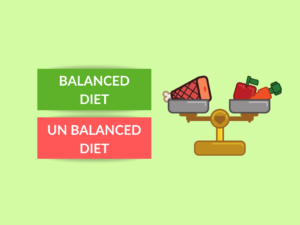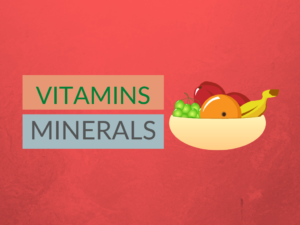What are Vitamins?
Vitamins are organic compounds that are essential for the proper functioning of the body. They play a crucial role in various physiological processes and are required in small amounts to maintain overall health.
Examples of Vitamins:
- Vitamin A
- Vitamin B
- Vitamin C
- Vitamin D
- Vitamin E
- Vitamin K
Uses of Vitamins:
Vitamins are necessary for the growth, development, and maintenance of our body. They help in boosting the immune system, promoting proper digestion, maintaining healthy skin and hair, supporting bone health, and aiding in cell regeneration.
What are Minerals?
Minerals are inorganic substances that are essential for the proper functioning of the body. Unlike vitamins, minerals are not produced by living organisms and are obtained through the diet or supplementation.
Examples of Minerals:
- Calcium
- Iron
- Magnesium
- Potassium
- Sodium
- Zinc
Uses of Minerals:
Minerals are important for maintaining healthy bones, teeth, and muscles, regulating fluid balance, supporting nerve function, aiding in energy production, and participating in various enzymatic reactions in the body.
Differences between Vitamins and Minerals:
| Difference Area | Vitamins | Minerals |
|---|---|---|
| Sources | Vitamins are obtained from plants and animals. | Minerals come from soil and water. |
| Chemical Nature | Vitamins are organic compounds. | Minerals are inorganic substances. |
| Required Amount | Vitamins are required in small amounts. | Minerals are needed in larger quantities compared to vitamins. |
| Storage | Vitamins generally cannot be stored in large amounts in the body. | Minerals can be stored in various body tissues. |
| Solubility | Vitamins can be water-soluble or fat-soluble. | Minerals are generally water-soluble. |
| Role | Vitamins are primarily involved in enzymatic reactions and other cellular functions. | Minerals play structural roles and are necessary for the proper functioning of cells and tissues. |
| Deficiency Effects | Vitamin deficiencies can lead to various health issues like night blindness, scurvy, or beriberi. | Mineral deficiencies can cause problems such as weak bones, anemia, or muscle cramps. |
| Toxicity | Vitamin toxicity is rare but can occur with excessive supplementation. | Mineral toxicity is possible with excessive intake, particularly from supplements. |
| Daily Intake Recommendations | Vitamin intakes are usually measured in international units (IU) or micrograms (mcg). | Mineral intakes are often measured in milligrams (mg) or grams (g). |
| Types | Vitamins are categorized into water-soluble (B-vitamins, vitamin C) and fat-soluble (vitamin A, D, E, K). | Minerals are classified into macrominerals (calcium, potassium) and trace minerals (zinc, iron). |
Conclusion:
In conclusion, vitamins and minerals are both essential for maintaining optimal health. Vitamins are organic compounds obtained from plants and animals, while minerals are inorganic substances sourced from soil and water. Vitamins are required in smaller quantities and have various roles in enzymatic reactions, while minerals are needed in larger amounts and play structural roles. Deficiencies or excesses of vitamins and minerals can lead to specific health issues. Therefore, a balanced intake of both vitamins and minerals is necessary for overall well-being.
People Also Ask:
1. What are the main differences between vitamins and minerals?
Difference Area: Sources, Chemical Nature, Required Amount, Storage, Solubility, Role, Deficiency Effects, Toxicity, Daily Intake Recommendations, Types
Answer: Please refer to the Differences Table above for a detailed comparison between vitamins and minerals.
2. Can vitamins be obtained from the diet alone?
Answer: While it is ideal to obtain vitamins from a balanced diet, sometimes supplementation may be necessary to meet individual needs.
3. Are there any vitamins that are toxic in high doses?
Answer: In general, vitamins are not toxic when consumed in recommended amounts. However, excessive intake of certain vitamins, such as vitamin A or D, can lead to toxicity symptoms.
4. Are minerals more important than vitamins?
Answer: Both minerals and vitamins are essential for overall health, and their importance cannot be undermined. Each has a unique role and contributes to different aspects of bodily functions.
5. What is the best way to ensure a sufficient intake of vitamins and minerals?
Answer: A well-balanced diet consisting of a variety of fruits, vegetables, whole grains, lean proteins, and dairy products can help ensure an adequate intake of vitamins and minerals. If needed, supplementation should be done under the guidance of a healthcare professional.



